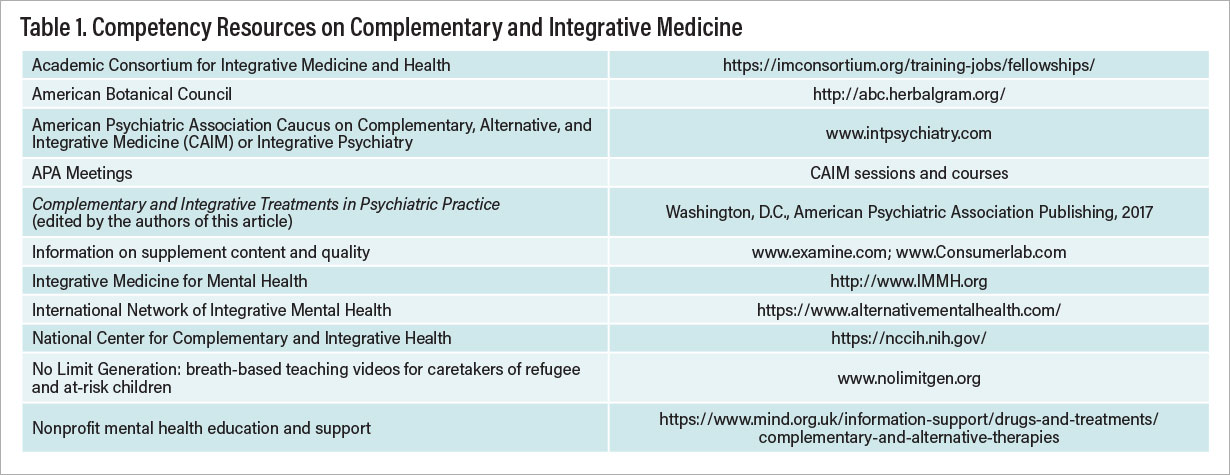
The benefits of yoga for blood pressure are many. It decreases systolic and diastolic blood pressures, improves quality-of-life, and reduces inflammation. What can yoga do to help with hypertension Let's review a few important points. First, let's clarify what pranayama is. It's a breathing exercise that involves taking a deep breath and slowly exhaling it. The goal of pranayama is to relax and calm the nervous system. Pranayama is also effective in treating nervous and lung diseases.
Lower systolic and diastolic blood pressure
Yoga can lower both systolic as well as diastolic blood pressure, according to researchers. This may be because yoga can lower systolic blood pressure without affecting the diastolic reading, making it a great alternative to taking antihypertensive drugs. The results are compelling enough that further research should be done on this subject. Yoga can be used to reduce blood pressure and increase polypharmacy.
Previously, a study showed that yoga could reduce systolic blood pressure in participants with high blood pressure. The CDC states that half of Americans can have high blood pressure. High blood pressure increases the risk of stroke and heart disease, which are the leading causes of death in the United States. Many people have high blood pressure, but they don't even know it! Yoga offers other benefits than lowering blood pressure. Yoga, a form of exercise that is great for stress reduction, can also help to lower blood pressure.

Yoga can help lower your systolic blood pressure. Yoga can also naturally lower blood pressure, which makes it an excellent alternative to prescription medication. However, if you are experiencing high blood pressure, lowering your systolic pressure with yoga can be a life-saving measure. Do not be afraid to ask your doctor for assistance if this is too difficult.
Improves quality of life
This study examines both the effect of yoga on blood sugar and overall health outcomes. It was intended to provide evidence on the effects of yoga upon blood pressure and quality life in a population suffering from high blood pressure. The researchers evaluated the quality of life for the yoga group, with and without exercise to test the hypothesis that yoga can be a useful adjunct to traditional treatments. Yoga significantly improved mental and cardiovascular health scores. The study also revealed that yoga can increase blood pressure control.
The authors performed a systematic literature review between January 2012 and September 2018, in order to test their hypothesis. The study utilized four databases to identify articles that contained relevant information. To find relevant articles, they used key words that were based on the study question. These key words were expanded to form "hub words" to search across all four sites. Participants who practice yoga had lower blood pressure and less heart disease, according to the authors. These findings require confirmation by further studies.
There were 83 participants with hypertension. They were aware of the possible risks of hypertension, and they had a history of heart disease in their family. While these people were optimistic about their ability influence their health, others felt depressed and ashamed of their high blood pressure. Many participants noted an increase in quality of life, despite the fact that yoga can lower blood pressure.
Reduces inflammation

One recent study found that yoga may help reduce inflammation, which could lead to lower blood pressure. This study examined how yoga affected blood pressure levels among high-blood pressure participants. Participants had to fill out a questionnaire regarding their health, lifestyle, and comorbid conditions. Participants were also asked fill out a calendar containing the dates of their training and return it 30 min later. The information in the calendars was not controlled, however. Blood pressure was measured using a validated electronic BP device in a sitting position, and the first and second readings were averaged. To collect blood samples, the study involved trained nurses and care assistants.
Yoga practice has been shown to decrease inflammatory markers, including IL-6 (which are inflammatory proteins) and hsCRP (which is IL-10). IL-6 (and IL-10) are indicators of inflammation. High levels of these proteins are associated both with increased mortality and high cardiovascular risk. Yoga has been shown that it reduces inflammation in many organs, including the blood. It was also shown to increase levels of anti-inflammatory substances, like IL-10.
FAQ
What should I do if I am experiencing mental health issues?
When you have any kind of mental health problem, it's important to seek treatment. Perhaps you've been through trauma or suffered abuse in the past. It is possible that your thoughts about yourself have been affected by this.
Another type of mental illness you might be experiencing is an addiction or eating disorder. These disorders can cause significant damage to your personal and professional life.
You should not attempt to resolve them by yourself. You should speak to someone who understands what you're going through. These challenges can be overcome with the help of a professional therapist.
What can I do to prevent mental health problems?
Preventing mental health issues is easier said than done. Here are some tips:
-
Don't drink alcohol. Drinking alcohol can cause depression and affect your mood.
-
Avoid using drugs. Drugs can affect your brain chemistry and make you feel worse.
-
Get enough sleep. Anxiety and depression can result from sleep deprivation.
-
Exercise regularly. Exercise is good for your mood and makes you feel happier.
-
Make sure you eat healthy foods. Eating junk food can make you feel sluggish and unhappy.
-
Spend quality time with loved ones. Spending time together with someone you love can boost your mood.
-
Have fun. Have fun with your life.
-
It is important to take breaks from social networking. Social media can make you feel isolated and lonely.
-
Treat yourself with kindness. Treat yourself nicely, even if you aren't feeling great.
-
Ask for help. If you're struggling to cope, ask for help. Talking to a family member or friend can be helpful.
-
It's okay to let go. Crying helps to relieve tension and stress. It does not necessarily mean that something is wrong.
-
Keep busy. Try to find something you like.
-
It is important to maintain good hygiene. Bad hygiene can make it difficult to feel attractive and clean.
-
Stay connected. Staying connected with others can help you remain positive.
-
Learn how to relax. Relaxation techniques such as meditation and yoga can help you to cope with stress.
-
Find meaning and purpose in what you do. Finding purpose in your work and hobbies can give you a sense of fulfillment.
-
Keep your eyes on the present moment. If you can focus on the moment, you will not worry as much about the future.
-
Set goals. You can set goals to motivate yourself to reach them.
-
Do something nice for yourself. Being kind to yourself can help boost self-esteem.
-
Practice gratitude. Gratitude can help to appreciate all the blessings in your life.
-
Volunteer. Volunteering can be an enjoyable way to spend time and make a difference in the world.
-
Give back. Giving back can help you feel fulfilled.
-
Be aware of warning signs. You should be aware of warning signs and reach out for assistance if you notice any changes.
What do psychologists think about mental health and well-being?
Psychologists believe that mental health is an essential part of human development. Psychologists believe that mental well-being is more than just being healthy.
Psychologists have different views regarding mental health. Some psychologists feel that mental health doesn't matter because there are so few people with mental illnesses. Other psychologists believe that mental health is extremely important because, without it, we cannot function properly.
What are the 5 ways you can improve your mental and emotional health?
-
Exercise - This improves brain function, and boosts energy levels.
-
Sleep - A good way to reduce anxiety and stress is to get enough sleep.
-
Nutrition – Eat healthy foods, such as fruits or vegetables, to keep your body strong.
-
Meditation – Regular meditation can reduce stress and anxiety.
-
Socialization: Spending time together with family and friends, keeps us happy.
Why is mental well-being important?
Everyone needs mental health. Mental health is essential for everyone. Maintaining a healthy mind is crucial.
Our bodies will begin to show signs of stress if they aren't feeling well. This could cause health problems, such as stomach aches, backaches, headaches, and other issues. Our bodies and minds must be well looked after.
What is Positive Psychology and Why Is It Important?
Positive psychology focuses on what makes us feel better about ourselves, such as happiness, optimism, gratitude, hope, love, kindness, compassion, forgiveness, courage, humility, curiosity, empathy, spirituality, and meaning. The goal of positive psychology is to help individuals become happier, healthier, and wiser through self-improvement.
There are two types if positive psychology: trait-positive psychology and process-positive psychology. Trait positive psychology examines how people behave naturally. How we can use certain strategies for achieving specific goals in process positive psychology
Statistics
- Neuropsychiatric diseases are the leading cause of death and disability in the U.S., accounting for 18.7 percent of all years of potential lifespan loss and premature mortality.
- More than 40 million adults in the United States have an anxiety disorder, but less than 37% of people seek mental health treatment for their symptoms. (talkspace.com)
- In any given year, an estimated 18.1% (43.6 million) of U.S. adults ages 18 years or older suffered from any mental illness, and 4.2% (9.8 million) (healthypeople.gov)
- It means no drinking any alcoholic beverages and no taking any drugs that aren't 100% natural.
- Similarly, for positive mental health, there is likely to be substantial agreement about some typical components (e.g., resilience to stress) 6, and controversy about more atypical components (e.g., career consolidation). (ncbi.nlm.nih.gov)
External Links
How To
How to manage stress
Stress is normal. We need to learn how to relieve stress. Stress can have a negative impact on every part of your life. Stress can cause physical problems, including headaches. You may even develop ulcers if you're under chronic stress.
There are many things you can do to reduce stress. Exercise releases endorphins that make you happy, relaxed and calm. Meditation reduces stress levels by helping you slow down and take deep breaths. Yoga is another great way of reducing stress and improving overall health.
Stress management is best done by learning how to control it and then eliminating it entirely. If you don't know what to do, ask someone who knows.